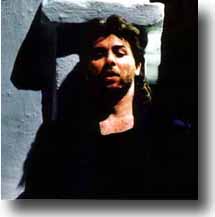REVIEW
Don Carlo, Châtelet, Paris, February 1996

The triumph of Don Carlos
Joel Kasow, Culturekiosque, February 1996
PARIS - The long-awaited run of Don Carlos settled in at the Châtelet
for seven performances before heading off to the other houses which
participated in financing the production: Covent Garden at the end of
this season and Brussels, Lyons and Nice next season, the casts varying
in accordance with local tastes and budgets. Attention was focused on
Roberto Alagna in the title role as he had at one time considered
relinquishing his part as too heavy. Fortunately, he confounded all
those who were prophesying doom and the end of a spectacular talent with
a portrayal full of energy and the kind of singing we have come to
expect. That he was singing in French was a great advantage as it seems
to evoke an instinctive response, a reaction we have already witnessed
in performances of Roméo et Juliette or Faust. At one or two moments the
passions came to the fore, but by the time the portrayal has matured he
will have calibrated his performance perfectly while retaining the
freshness which makes him special.
A cast which looked fascinating on paper even though wildly
heterogeneous had been tightly prepared by producer Luc Bondy and
conductor Antonio Pappano so that their disparate qualities were all
used to maximum advantage. José van Dam's Philippe II today lacks the
lowest notes of the role, but the complexities of the character are very
present. Thomas Hampson in the pivotal role of Rodrigue, Marquis de Posa
sang with the elegance we have already remarked in his earlier ventures
into the French repertoire, enjoying the extra opportunities offered him
in this version. Eric Halfvarson's well-sung Grand Inquisiteur did not
erase memories of either Hermann Uhde or Martti Talvela who were
literally spine-chilling.
Karita Mattila's Elisabeth de Valois was very much flesh and blood,
perhaps more than court etiquette would have allowed, but her generous
performance in all senses left me open-mouthed in admiration. The
weakest spot was the Eboli of Waltraud Meier, vocally at sea even if
dramatically exciting.
Antonio Pappano deserves all credit for coaxing the Orchestre de Paris
to give the sort of performance of which they should regularly be
capable. Luc Bondy's production started off reasonably well, despite the
occasional touch to indicate that there is a world surrounding the
protagonists, but after the first interval such incidents became
increasingly numerous to the discomfort of many in the audience. The
decors of Gilles Aillaud varied from an atmospheric 1 and 2 to an
auto-da-fé all in cheap pine or the King's bedroom which was not as
stifling as one might wish. Moidele Bickel's costumes preserved a period
flavor while looking as if they might not be out of place today.
One of the most fascinating aspects of this production was the use of
the original French text which often sits better on the music than the
Italian translation to which we have become accustomed. Bondy and
Pappano along with Andrew Porter sifted through the various scores -
original, dress rehearsal, premiere, Naples revision and final
versions - to come up with their own hybrid, sometimes inserting earlier
material in the middle of ensembles later tightened (Philippe-Posa duet)
or replacing the final version with the first (Act Four Quartet). Where
a section was simply cut and never reinstated there is something to be
said for exhumation. But the occasion to hear some of Verdi's music as
originally set, including sections removed and never replaced, is
unique. You will be able to judge for yourselves when the EMI live
recording is released.
Copyright © 1996-2000 Culturekiosque Publications, Ltd
This page was last updated on: May 12, 2005